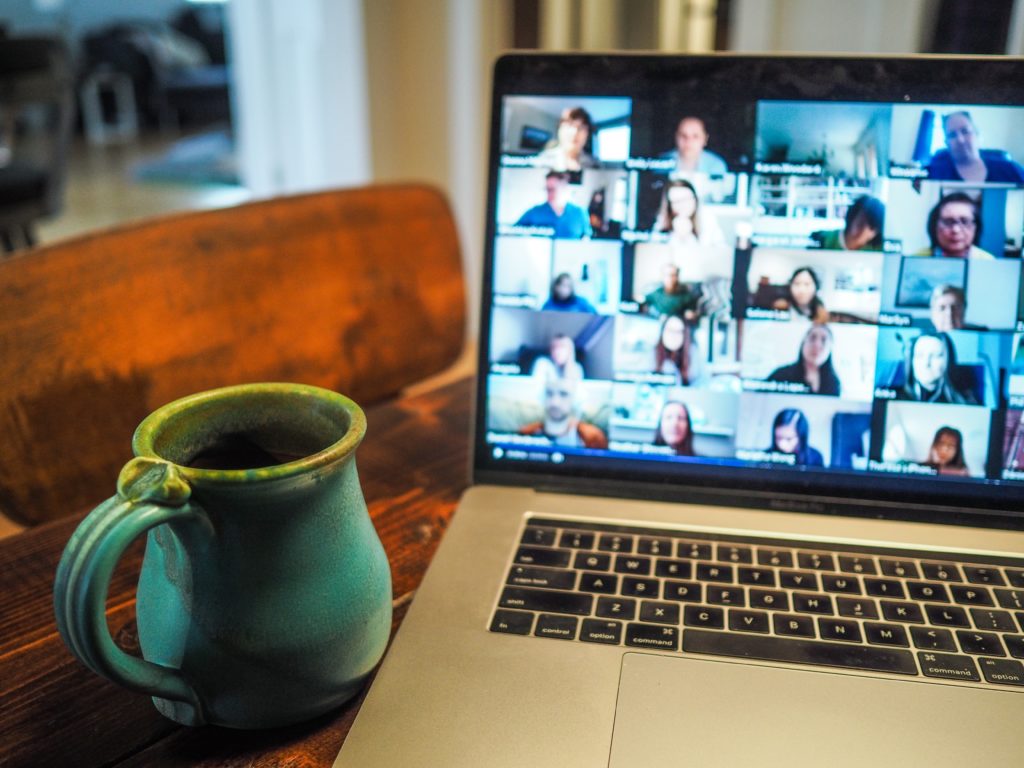Over-zoomed: A perspective on the impact of constantly being in the virtual space
By Natasha Tsatsi, 21, Gauteng

“That meeting should have been an email!” is what I exclaimed after my fourth meeting of the day at 5 o’clock on a Thursday afternoon. I had enough of sitting in front of my computer screen all day. I had been in one Zoom meeting after the other, throughout the day, dressed up in my pyjamas from my waist down and having a shirt on as a way to give the illusion that I had my act together. I shut my laptop, closed my eyes and sat in silence as I felt this feeling of exhaustion overcome me. This feeling was unlike any form of exhaustion I have ever felt in my life, as an Honours student who needs to navigate their academics and their internship at the same time. Therefore, feeling exhausted has always been a normal part of my being and I have always had strategies to combat that. Was I overwhelmed? Yes. Was I overworked? Definitely. Was I burnt out? For sure. However, none of these descriptions matched what I was feeling in that moment. I eventually triangulated what I was feeling to being “over Zoom”—something I would call “Over-Zoomed”.
Zoom, as well as many other virtual teleconference applications, have become a normal part of our daily lives as students and professionals. We spend countless hours huddled over our cellphone or computer screens, watching other people speak. Although the virtual space has been very helpful in ensuring people remain connected during the global pandemic, it has become very taxing and exhausting for people such as myself. This can be due to multiple factors, such as:
- The only window for interaction is the screen: We interact with our colleagues and superiors in the same space as we do with our friends and family. The lack of boundaries we set for ourselves in the virtual space thus makes interacting with loved-ones through the virtual space feel like a chore. Therefore, we may end up joining Zoom meetings with loved ones not because we want, but mainly because we feel like we have to.
- Feeling the need to perform: Virtual meetings feel less personal because not only are you watching other people speak, you are also watching yourself speak. Watching others watch you may result in making you feel like you need to perform in a certain way in order to make it seem like you are interested in the conversation—which diminishes your ability to be yourself.
- Feeling the need to always be present: We commit to too many meetings because everyone is under the illusion that everyone has nowhere to go and that therefore means that everyone has the time for a brief meeting.
The above points suggest that those who are feeling over-Zoomed should make the effort to limit and alter their interactions in the virtual space. This includes: only having Zoom meetings when it is absolutely necessary; saying no when you know that you have had enough of engaging on the virtual space; including “me time” into your daily schedule if you know that you are going to have a busy day/week; and taking the time to refresh yourself (e.g. going outside or going for a walk) in between meetings. All of these ideas seem easier said than done, but they can really aid in giving us the ability to gain control over a certain aspect of our lives during such unprecedented times.
Reflect on what YOU can do to in order to deal with being over-Zoomed in the comment section below.
Sharing is caring!
Help us spread the word about Voices Unite:


